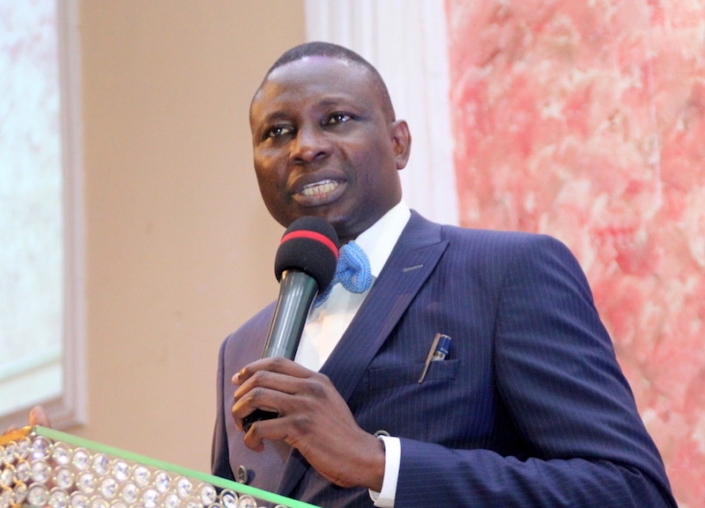The managing director and chief executive officer of Nigeria LNG Limited (NLNG), Philip Mshelbila, has said Nigeria must be deliberate in its desire to take opportunities offered by the energy transition, the recognition of gas as a transition fuel and the quest for clean energy to increase its gas investment and harvest the gains from gas.
He was speaking when the visiting Minister of State for Petroleum Resources (Gas), Ekperikpe Ekpo, arrived at the NLNG plant on Bonny Island, Rivers State.
He spoke of the great achievements of his company saying, “As we embark on the journey to complete Train 7, we are on the precipice of achieving a remarkable milestone – a capacity of 30 million tonnes per annum (MTPA).
“This accomplishment will not only position us as one of the largest single-site operations globally but potentially among the top three worldwide in terms of such capacity at a single site.”
- Ajulo, Falana’s wife, EFCC lawyer, 55 others get SAN
- Tinubu okays 260 emergency road repairs, reconstitution of FERMA board
Then came the confession and reality check – that the company is operating at half capacity because vandals are breaking the gas pipes thinking they are petroleum pipes to steal the crude oil so they are currently getting only half of the gas they pay for.
What then is the point of investing in more trains when the existing ones are not getting enough gas supply? Meanwhile, gas for electricity generation and cooking gas remains scarce.
Also, this week, the Defence Headquarters says its troops of Operation Delta Safe have uncovered and deactivated 53 illegal refining sites, recovered stolen products and arrested 19 suspected oil thieves in the last one week.
The spokesman added that the troops discovered and destroyed 54 dugout pits, 66 boats, 138 storage tanks, 253 cooking ovens, two pumping machines, eight speedboats, 17 hoses, 18 drums and two cylinders. “We regularly get these results of the success of security operatives these days but the reality is that Nigerian oil production figures have gone up slightly but not significantly in recent months,” it stated.
The House of Representatives Ad-hoc Committee on the “Need to Investigate Crude Oil Theft and Loss of Revenue Accrued from the Oil and Gas Sector in Nigeria” has decided to hold a public hearing and has requested memoranda from the public.
They say that reports indicate that about 40 per cent of crude oil loss is due to inaccuracies in measurement and theft as metering errors continue to occur as a result of poor maintenance of metering facilities, thus resulting to a lack of transparency in hydrocarbon accounting.
The Nigerian Extractive Industries Transparency Initiative (NEITI) has also revealed that Nigeria lost 619.7 million barrels of crude oil valued at N16.25 trillion ($46.16 billion) to crude oil theft between 2009 and 2020.
Orji Ogbonnaya, the Executive Secretary of NEITI, said this during a policy dialogue on the utilisation of beneficial ownership data in the fight against corruption in Nigeria’s crude swap deals, held in Abuja.
He said the volume of crude oil stolen represented a loss of over 140, 000 barrels per day, adding that between 2009 and 2018, the country lost 4.2 billion litres of petroleum products from refineries valued at $1.84 billion.
What this is saying is that the crippling revenue loss that has brought the Nigerian State to its knees is simply a reflection of the inability to check the activities of mega thieves in our society. If 40 per cent of our petroleum is stolen, it cannot be the work of petty thieves. Industrial-level theft on this scale can only happen if the key state institutions – the NNPCL and the security agencies are fully involved.
“This then is the problem; state agents have turned rogue and are dismantling and selling state assets with impunity. As they make the state bankrupt, the question is whether political leadership will have the strength and courage to stop the rot and place the country on the mend.”
Yesterday, President Bola Tinubu appointed Olanipekun Olukoyede as the Chairman of the Economic and Financial Crimes Commission (EFCC), the ace anti-corruption agency. The former chairman, Mr Abdulrasheed Bawa, has been in the custody of the State Security Service (SSS) facing investigations over undisclosed corruption allegations since his earlier suspension from office in June.
Premium Times yesterday reported that Mr Olukoyede, although a former secretary of the EFCC and ex-chief of staff to the chairman of the commission, did not meet the requirements of Section 2(3) of the EFCC Act, to be qualified for the appointment.
The law stipulates that a chairman of the commission “must be a serving or retired member of any government security or law enforcement agency not below the rank of Assistant Commissioner of Police or equivalent; possess not less than 15 years’ experience.”
Mr Olukoyede had no experience in any security or law enforcement agency until his first appointment at the EFCC in 2016, when he was appointed to serve as the Chief of Staff to then acting chairman of the EFCC, Ibrahim Magu. He held the position from 2016 to 2018.
Mr Magu himself had his entire leadership of the EFCC mired in allegations of corruption and the refusal of the Senate to confirm his appointment based on alleged negative security reports. Is it really surprising that clean candidates are seldom appointed so that things can continue as they are?
The real question is whether there is any desire to save the Nigerian State from self-destructing or whether successive leaderships will go through, get what they can and move aside for the next batch until the State dies completely.

 Join Daily Trust WhatsApp Community For Quick Access To News and Happenings Around You.
Join Daily Trust WhatsApp Community For Quick Access To News and Happenings Around You.



